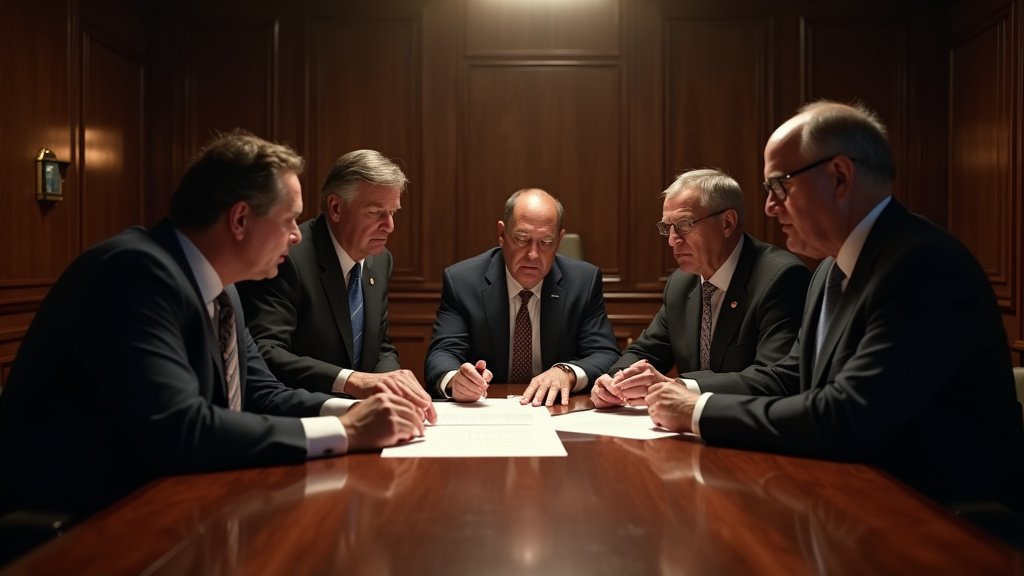Washington D.C. – A legislative maneuver that could have opened up hundreds of millions of acres of publicly owned land across the United States to potential sale has been halted, at least temporarily. The proposed measure, part of a larger Republican budget reconciliation effort dubbed the One Big, Beautiful Bill, faced a significant procedural roadblock when the Senate parliamentarian ruled that provisions allowing the sale of public lands could not be included under the strict rules governing reconciliation.
This ruling delivers a temporary reprieve for vast tracts of federal lands, including those in states like Oregon and Washington, which had been identified as potentially eligible for divestment. The original proposal was ambitious in scope, aiming to make up to 250 million acres across 11 western states eligible for sale. The land targeted largely consisted of holdings managed by the U.S. Forest Service and the Bureau of Land Management, specifically excluding designated national monuments and wilderness areas.
The Rationale Behind the Proposed Sales
Proponents of the land sale initiative argued that strategically selling certain public lands could address pressing national issues while benefiting local communities. One key argument centered on the potential to release urban-adjacent lands for housing development, a move they contended could help ease growing housing shortages in rapidly expanding areas. Furthermore, selling federal lands to private owners would transfer them onto local property tax rolls, theoretically increasing revenue for local governments.
Critics Raise Concerns Over Safeguards and Intent
Despite the arguments made by supporters, the proposal faced sharp criticism from conservation groups, citizens, and some editorial boards. Critics, including The Tri-City Herald Editorial Board, expressed significant concern over a perceived lack of sufficient safeguards within the proposal to prevent the indiscriminate sale of valuable environmental or recreational lands. A recurring theme among detractors was the potential influence of political figures with documented histories unfavorable to public land protection. Specifically, critics pointed to former President Donald Trump’s documented disdain for public lands as a warning sign of potential motivations behind such a broad divestment strategy.
The debate underscored a fundamental philosophical divide regarding the purpose and ownership of these vast federal holdings. While supporters emphasized economic utility and local tax benefits, opponents strongly argued that public lands belong to all Americans and should be managed for conservation, recreation, and long-term public benefit, not primarily for sale.
Potential Local Impacts and Assessed Risk
The Tri-City Herald Editorial Board’s critique highlighted potential impacts on areas near the Tri-Cities region in Washington. Specific locations mentioned as being potentially vulnerable under a broad land sale policy included the south slopes of the Horse Heaven Hills and lands around Juniper Dunes. However, the editorial also noted that the immediate risk to these specific, often more remote, areas might be relatively low compared to lands closer to urban centers, given their less desirable characteristics for immediate development.
Legislative Hurdles and the Filibuster
The Senate parliamentarian’s ruling is significant because it prevents the land sale provisions from moving forward under the special rules of budget reconciliation, which allow certain fiscal measures to pass the Senate with a simple majority vote (51 votes or 50 plus the Vice President’s tie-breaker) rather than the standard 60 votes typically required to overcome a filibuster.
Had the parliamentarian not intervened, the land sale proposal could have potentially been attached to a must-pass budget bill. Now, if proponents wish to advance the land sale plan, it would likely have to pass as a standalone bill. This path would necessitate clearing the 60 Senate votes threshold required by the filibuster, a significant challenge given the strong opposition from Senate Democrats, who largely oppose broad public land sales.
Leading voices in the opposition have been clear about their intent. Senator Maria Cantwell, D-Wash., for example, has publicly stated that she and her colleagues would actively fight the proposal should it ever be included in a bill or brought to the Senate floor for a vote.
Conclusion: A Temporary Reprieve, Not a Resolution
The parliamentarian’s ruling effectively stalls the immediate threat of widespread public land sales under the framework of the One Big, Beautiful Bill. It underscores the procedural complexities of the Senate and the enduring debate over the future of federal lands in the American West and beyond. While the immediate legislative path for selling millions of acres has been blocked by the need to potentially gain 60 votes, the underlying tension between preserving public access and considering lands for economic development and revenue generation remains a prominent issue in national land management policy and will likely surface again in future legislative debates.




